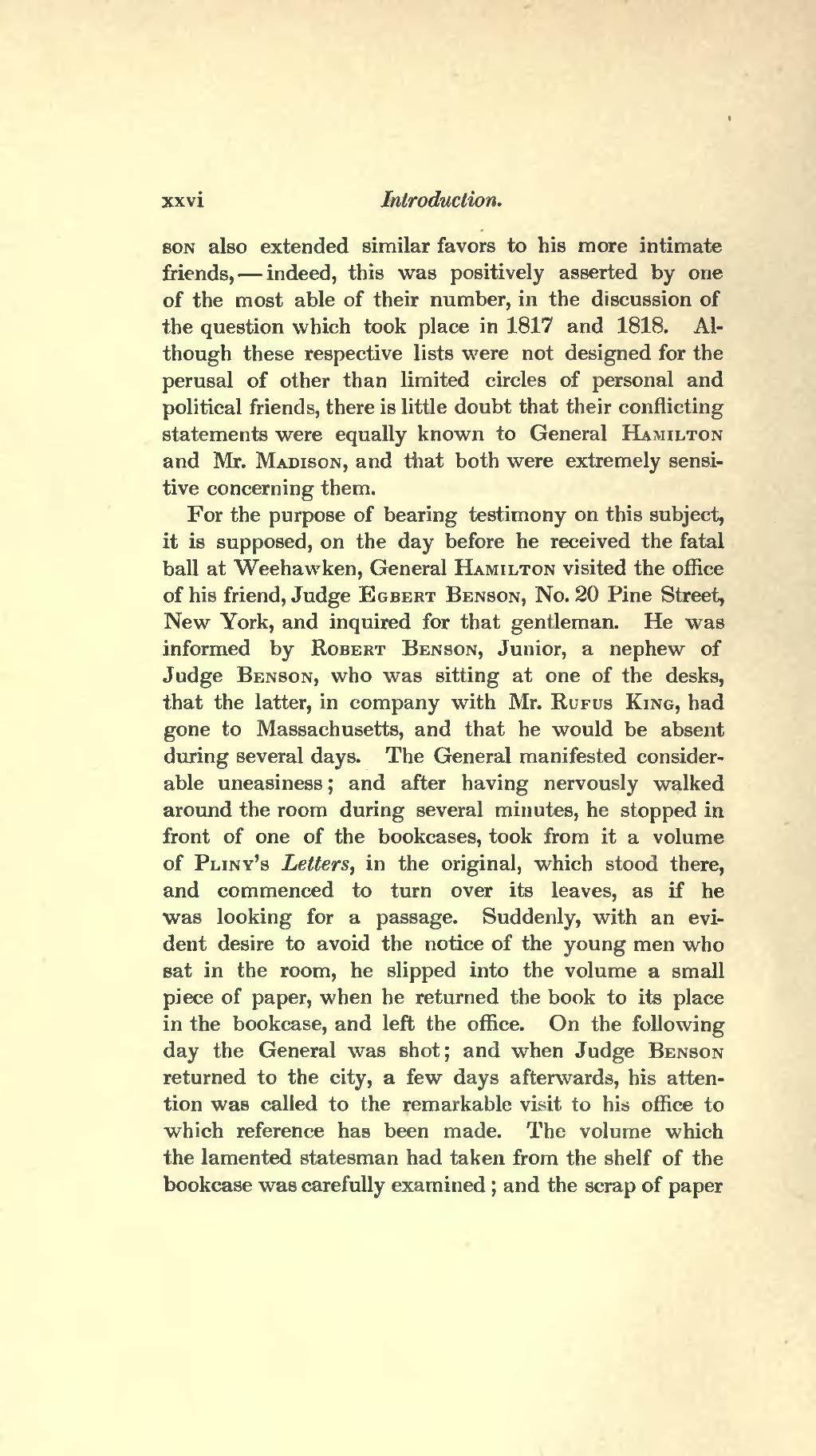son also extended similar favors to his more intimate friends,—indeed, this was positively asserted by one of the most able of their number, in the discussion of the question which took place in 1817 and 1818. Although these respective lists were not designed for the perusal of other than limited circles of personal and political friends, there is little doubt that their conflicting statements were equally known to General Hamilton and Mr. Madison, and that both were extremely sensitive concerning them.
For the purpose of bearing testimony on this subject, it is supposed, on the day before he received the fatal ball at Weehawken, General Hamilton visited the office of his friend, Judge Egbert Benson, No. 20 Pine Street, New York, and inquired for that gentleman. He was informed by Robert Benson, Junior, a nephew of Judge Benson, who was sitting at one of the desks, that the latter, in company with Mr. Rufus King, had gone to Massachusetts, and that he would be absent during several days. The General manifested considerable uneasiness; and after having nervously walked around the room during several minutes, he stopped in front of one of the bookcases, took from it a volume of Pliny's Letters, in the original, which stood there, and commenced to turn over its leaves, as if he was looking for a passage. Suddenly, with an evident desire to avoid the notice of the young men who sat in the room, he slipped into the volume a small piece of paper, when he returned the book to its place in the bookcase, and left the office. On the following day the General was shot; and when Judge Benson returned to the city, a few days afterwards, his attention was called to the remarkable visit to his office to which reference has been made. The volume which the lamented statesman had taken from the shelf of the bookcase was carefully examined; and the scrap of paper

